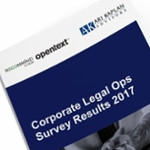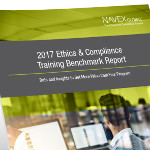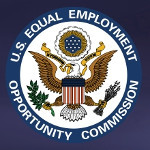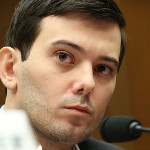By Stephen F. Pinson
Scott & Scott
 More and more businesses are considering accessing hosted software rather than purchasing on-premise software. They are also placing data in third-party public or private clouds instead of selecting on-premise software. This article will explain the key considerations and contractual provisions when deciding to utilize a hosted software cloud solution versus On-premise software solutions.
More and more businesses are considering accessing hosted software rather than purchasing on-premise software. They are also placing data in third-party public or private clouds instead of selecting on-premise software. This article will explain the key considerations and contractual provisions when deciding to utilize a hosted software cloud solution versus On-premise software solutions.
KEY CONSIDERATIONS
1. Strategic Considerations
Using hosted software in the cloud allows for greater flexibility such as: allowing a business to access its information from any location, and not having the initial outlay of capital to purchase servers and other infrastructure when implementing the software’s use. This is a significant departure from on-premise software, which often requires substantial infrastructure investment, and can only be accessed from the device the software installed.
2. Financial Considerations
Cost Savings
Most businesses switch to the cloud because of the belief in inherent cost savings. However, in the long run, switching to the cloud will not always result in savings. Cloud infrastructure costs money, and the business will be the one that bears the costs, usually in a monthly subscription, instead of a yearly license fee.
Return on Investment – Moving from CapEx to OpEx
On-premise software products and hardware infrastructure are generally considered capital expenditures, while subscriptions to cloud software are typically classified as operating expenses. It is important to consult with tax professionals to ensure there are no unintended consequences from making the switch from on-premise to hosed software products.
Infrastructure investments / upgrades
Generally, on-premise software requires purchase of hardware or use of infrastructure that is already in place. On the other hand, moving to the cloud may require an investment in upgraded devices or equipment to maximize the value of the hosted solutions.
Cost to implement or migrate. When moving from on-premise to the cloud, there can be significant implementation or migration costs. Companies may not adequately consider the costs related to migrating data to the hosting or storage providers. The number of man hours required to successfully migrate can be significant and costly. Accordingly, the scope and complexity of the migration is an important consideration when negotiating a contract.
3. Operational Considerations
Outsourcing activities
Using the cloud can pave the way to outsourcing non-core operations. On the other hand, on-premise software may require more sophisticated security credentials currently in place, whereas the cloud application may reduce that need.
Support
On-premise software generally requires maintenance and support along with support levels and support times. These generally are limited to business hours, and come with increased costs for after-hours support. When using the cloud, maintenance and support are included as part of the package, and are generally included as a 24/7/365 service.
4. Technical Considerations
Infrastructure
To use on-premise software, companies must procure appropriate hardware. For cloud solutions, the cloud vendor provides the hardware, infrastructure and applications for the software to work, but that does not mean that there is no investment by the end user to the software. The end users may need to upgrade devices and security plug-ins. They also may need to expand firewalls to cope with the additional internet traffic. Internet providers may need to provide more bandwidth.
Location and Ownership of the data
There is little question as to where data will be stored and who will own the data when using on-premise software – the customer owns the data. However, when using cloud solutions, the location and ownership of the data may become unclear. A business wants to own its data and not let it be used for research or statistical purposes, particularly by its competitors. Additionally, many businesses want or need the data to be stored in the nation where they are located or where they are doing business, and not some remote or foreign locations.
5. Security, Backup, & Privacy Considerations
Security
When using cloud or on-premise software security is important. On-premise software provides a level of security that is implemented through patches and updates to the software. Cloud providers can hand off their hosting and security to a third party provider, which can compound security risks. It is critical to understand and document who bears the risks of a security incident in the event of a security incident.
Backup
For on-premise software, the backup is left to the business user. For cloud, the cloud provider generally provides the backup for certain intervals of time, which is generally contracted for by agreement. It’s important to have a backup schedule with redundant backups when contracting with a cloud provider, as well as a general understanding of what information is purged from the system.
Privacy
For on-premise software, privacy is generally not a concern, because the software is part of the business infrastructure. However, in a cloud implementation, privacy issues become a major concern because business information is sent over the internet which can be intercepted by hackers. Understanding how the cloud provider protects your privacy is always important.Accordingly, below is a list of key contractual provisions that are critical when deciding to utilize hosted software in the cloud vs. on-premise software.
KEY CONTRACTUAL PROVISIONS
1. Strategic Considerations
It is critical to clearly identify the requirements for companies that will host software applications or store the business’ data. For flexibility, it is also important to evaluate whether traditional on-premise license metrics will be appropriate for any hosted software solutions. Generally, it is its best practice to negotiate the number of users rather than the number of devices when negotiating a cloud deal for maximum use. A user can use several devices at once, and being charged for each device would be costly to the business.
2. Financial Considerations
To be sure fees are controlled when deciding on utilizing an on-premise solution versus a hosted software solution, the business should calculate the cost of both on-premise licenses along with maintenance and support and compare the costs to the total amount required to subscribe to the hosted version of the software solution. If the costs are relatively the same, then capping the monthly cloud subscription every year would be wise to keep costs in line. Additionally, it’s important to negotiate infrastructure upgrades and implementation and migration costs to the cloud or to any subsequent provider.
3. Operational Considerations
It is important to negotiate who will have access to the cloud and what administrative rights will be assessed to each user. Additionally, its best practice to negotiate the support levels when using cloud, and any service credits for failure to implement the service.
4. Technical Considerations
When negotiating a cloud deal, companies should understand and document ownership of the data, allowable uses of the data (even in aggregated form) by the cloud provider, and locations where the data may be stored.
5. Security, Backup, & Privacy Considerations
For security, it is a best practice to include security protocols in the contract and to successfully negotiate a reasonable limitation of liability for security incidents, back-up failures, or privacy incidents. In these scenarios, the limitation of liability may include a carve-out, or a super-cap to handle the increased risks involved. For backups, it is always important to contract with the cloud provider the specific backup procedures, protocols, and backup intervals required by the business. Additionally, it is important to include in the contract security reports or audits for the business to ensure that the cloud provider is following those contractual obligations. Lastly, for privacy, it is always important for the business to include privacy language and protocols for incident response. Specifically, when an incident occurs, the business should require the vendor to notify the business immediately of any privacy or security incidents. Lastly, it’s always best to negotiate the appropriate levels of insurance for provisions dealing with these topics.
When switching from on-premise software to a hosted software cloud solution, there are numerous business issues to consider. Having a plan when switching to a hosted software cloud provider is crucial to a business’ success. Given the risks, it is increasingly important to seek advice from experienced counsel when negotiating contracts like these to make sure the risks are adequately assessed and each party’s interests are protected.
 OpenText Discovery (formerly Recommind) has published a report titled “Corporate Legal Ops Service Results 2017,” which is available for complimentary downloading.
OpenText Discovery (formerly Recommind) has published a report titled “Corporate Legal Ops Service Results 2017,” which is available for complimentary downloading.







